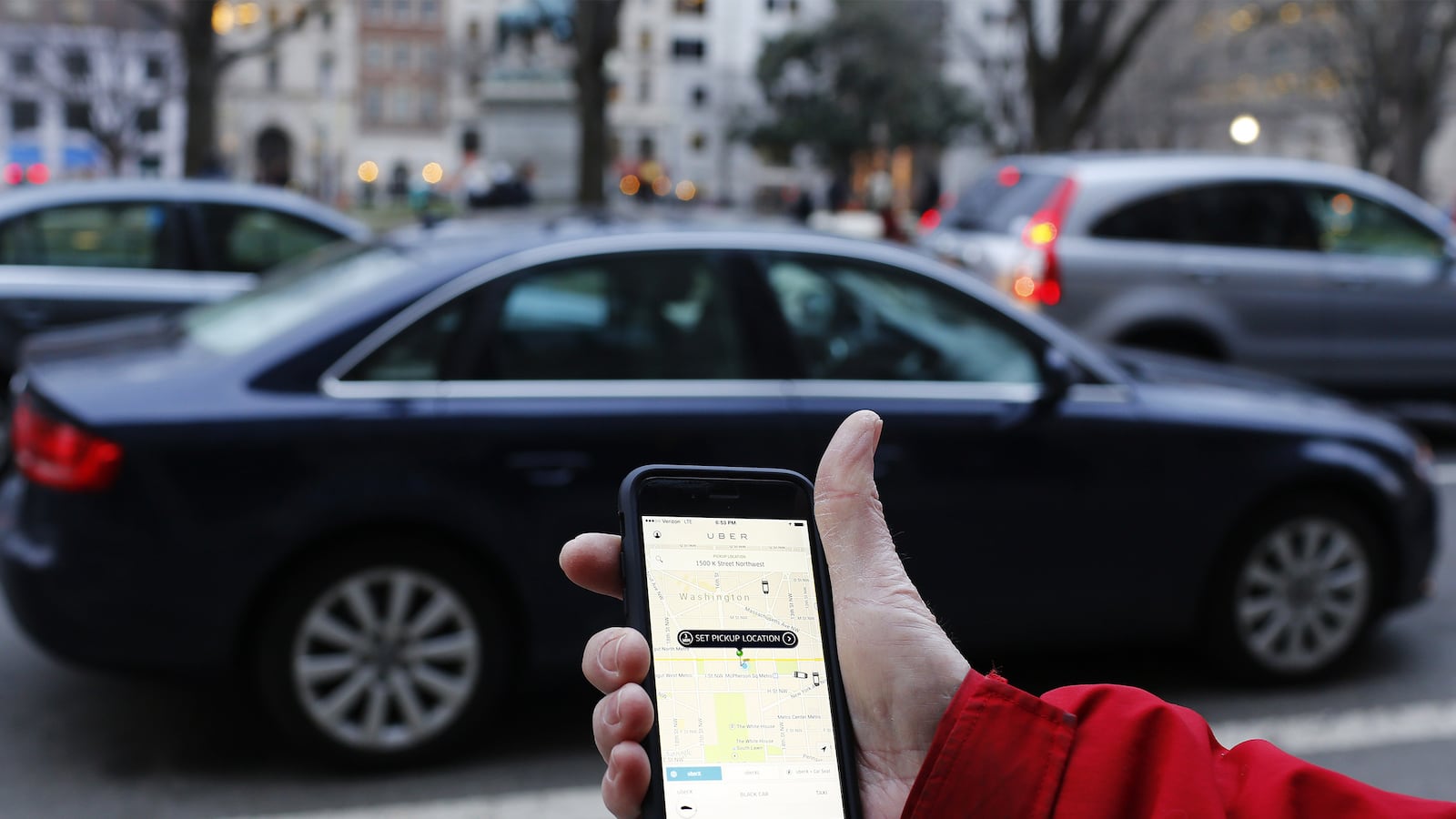You may have noticed that Republicans have a bit of a hipness deficit. The Grand Old Party has long struggled to appeal to #Millennials, and late last summer, the folks at the Republican National Committee seemed to have a bit of an epiphany: Uber!
On Aug. 6, 2014, the RNC launched a petition encouraging supporters to “stand up for our free market principles” (and give the committee their email addresses).
But if the RNC made any effort to influence Republican legislators’ thinking on questions of rideshare regulation, those efforts had very mixed results—at best.
In the months since the RNC invoked “taxi unions and liberal government bureaucrats” as the dangerous foes of rideshare freedom, Republican lawmakers around the country have proven that opposition to Lyft et al. is truly bipartisan.
Andrew Moylan, the executive director of the R Street Institute—a conservative think tank that works extensively on issues involving transportation network companies like Uber and Lyft—said that since the RNC rolled out its pro-Uber rallying cry, there’s been no discernible change in how the party’s legislators have handled policymaking on their issues.
“There hasn’t been any consistent ideological trend that we’ve been able to identify just yet,” he said.
He added that there’s a broad national policy trend of tightening rideshare regulations for customer safety purposes—for instance, mandating driver background checks and barring these companies from hiring sex offenders.
But there have also been lots of efforts to make it harder for these start-ups to compete with conventional taxi cab companies—which wield their own, often long established, legislative power.
The RNC’s petition seems to target those kind of “strangling regulations,” but some of its fellow Republicans are the ones putting companies like Uber in a chokehold.
In Michigan, for instance, Republican legislators pushed for bills that left members of the rideshare industry chafing.
One bill would have made Uber drivers get the same licenses as limousine drivers, a standard Moylan described as “problematic.” Republican state Sen. Rick Jones expressed concern about surge pricing; Michigan Daily reported that the state’s taxicab drivers think it’s unfair that Uber can charge extra when demand is high, but they can’t.
Michigan Daily wrote Jones thinks “surge pricing does need to be addressed eventually,” a comment that sounds ominous for advocates of letting businesses decide prices.
Meanwhile, in Georgia, Republican state Rep. Rich Golick pushed for legislation in March that, per the company, would drive Uber out of the state. And Gov. Nathan Deal signed legislation this month that will, per WRBL, “require ride-hailers to register with the Georgia Department of Public Safety.”
That isn’t exactly the kind of bureaucratic red tape that gets the RNC’s juices flowing.
Redder-than-red Kansas just passed regulations that drove Uber out of the state.
Republican Gov. Sam Brownback vetoed legislation that put pricey insurance requirements on Uber drivers, but the Republican-controlled legislature overrode his veto, and Uber skedaddled.
The company and the legislature are trying to find compromise legislation, according to KSN.com, but some Republican lawmakers are using the type of rhetoric that makes free marketeers squirm.
“If we can fund [sic] a negotiation that satisfies the marketplace, reasonable regulations that maintain market stability and safety, then we want you to work in Kansas,” said Republican state Rep. Scott Schwab, per KSN.
Using state regulations to “maintain market stability” doesn’t exactly comport with the RNC’s free-market vision. And it may not bode particularly well for red-state ridesharing.
In reality, a city’s ideological bent doesn’t seem to be a strong indicator of whether you’ll be able to get an Uber there or not.
R Street has a scorecard that rates cities on their transportation policies (www.ridescore.org), and Moylan pointed out that the comparative blueness or redness of a city doesn’t say much about its rideshare-friendliness.
Washington D.C. and Minneapolis, bastions of liberal policymaking, both get A’s.
But even-more liberal Portland, Ore., gets an F.
Indianapolis, a comparatively red city, gets good marks, while oil-rich San Antonio gets a sad D-.
There’s one dot of light for the RNC and rideshare advocates: Gov. Scott Walker in Wisconsin signed legislation this month implementing statewide regulations that Uber and co. don’t seem to hate.
Moylan noted that Walker is following a few other governors in passing statewide regulations that preempt city and municipal rules.
Red Alert Politics pointed out the law’s licensing fees present “an added burden for drivers who already have to pay the fees required to get a driver’s license.”
The companies will also have to pay $5,000 every two years to operate in the state. But Moylan said Walker’s legislation will keep cities like Madison from implementing even tougher regulations—for instance, bans on surge pricing. So while Walker may not have given national conservatives much to crow about when it comes to ridesharing, he also hasn’t overseen a Kansas-esque disaster.
Uber advocates aren’t complaining about the RNC trying to reach kids by talking up transportation policy. But Moylan added that their stance hasn’t had discernible policy results.
“As an effort, I think it was largely an email list building exercise,” he said.




